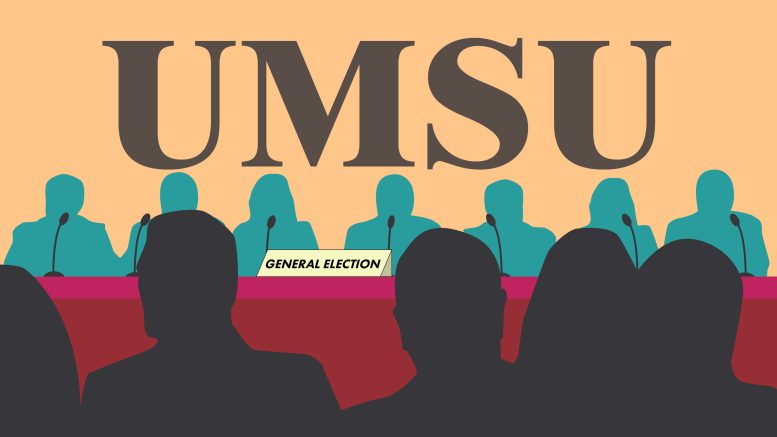I will never forget the day Kamala Harris — the first woman to serve as vice-president of the United States — was sworn into office. Tears were rolling down my cheeks not necessarily because I agreed with her policies but rather because I was able to see myself in her. As a Latino-Caribbean, I realized I was seeing a woman of colour occupy the second-highest office of the executive branch and this empowered me. For a brief second, I felt relief as the previous government, that had directly oppressed my people, faded away and became nothing but a sad chapter that kids will one day study in history class. But most importantly, I felt represented. In that moment, I felt everything was possible. If a first-generation American coming from immigrant parents was able to become the vice-president of the U.S., what wasn’t I capable of doing?
Race, culture and gender identity have always been polarizing, but advocates continue to fight for the representation they deserve. I like to be optimistic and think we are working toward a society that stops explicitly functioning for the historically privileged and grants a chance to the talented people that come from these diverse groups. When I decided to study in Canada — a country that is ethnically heterogeneous — that is what I expected: an environment where I could see myself in others and not feel so alone in my struggles. I remember being inspired when I heard Minister Pablo Rodriguez’s name while watching Prime Minister Justin Trudeau’s new cabinet get sworn in at Parliament. My immediate thought was the Hispanic community has a brother in the cabinet. I expected the same representation from the University of Manitoba Students’ Union (UMSU) considering one of its core values is diversity.
I started researching UMSU’s motion 0525 out of intrigue, not because I am a columnist for the student newspaper, but rather as a student who is a member of a racialized community that currently holds no official position on UMSU’s board of directors. In a meeting with two of the Arts Student Body Council (ASBC) representatives — Hannah Belec and Dario Duque Giraldo — I realized the representation concerns that were being raised were far deeper than my initial expectations.
According to Duque Giraldo, board reforms were underway after the Susan Rogers report — a report conducted due to concerns regarding the board’s structure and its fiduciary duty to a diverse base of students. The findings of the report stem from the ongoing debate about representation versus efficiency. Rogers suggested to reduce the size of the board to make it more efficient. Further, Rogers proposed UMSU should include external directors that are not students at the university.
From the early stages of the process, Duque Giraldo — who at that time was not an UMSU representative but ASBC’s racialized students’ representative — actively opposed the motion to reduce the board’s voting members, and it failed to pass. Following the report, an equity, diversity and inclusion (EDI) report was conducted by an individual external to UMSU which halted the motion’s progress. According to Duque Giraldo, the EDI concluded there was a lack of representation within the board. This report alluded to the fact that efficiency has typically been prioritized over the concerns about representation. But that was just the beginning of motion 0525.
Belec claimed the motion was reintroduced in the fall term of 2021. At this point, some modifications were made to address the representation concerns of students. However, when directors approached the governance committee, the committee argued that a lack of space, engagement and logistics, in case of an emergency meeting, were their primary concerns in regard to the board’s reform. Duque Giraldo and Belec proposed smaller steps to avoid the lack of representation this reform would undoubtedly precipitate. Belec also pointed out too much attention is paid to the size of boards in other universities. Nonetheless, there has been no evidence presented showing that smaller boards are more efficient.
While I digested the information that was being presented by the UMSU directors, I couldn’t help but think of big bureaucratic institutions that also operate in matters of representation such as the House of Commons in Ottawa, Ont. Why is a student union with fewer constituents unable to follow the precedent set by offices that have arguably been working to provide better representation for marginalized groups? I thought of UMSU president Brendan Scott’s comment describing the current board as “broken” and wondered if both a representative and efficient UMSU board of directors was possible. Both Duque Giraldo and Belec eagerly pointed to the fact that it already was.
Following the interview, I thought about the struggle racialized people face on a daily basis. We are always looking back because, to Anglo-majority communities, we are walking targets. We are given condescending looks when our accents come through as we try to form sentences in a foreign language. We are always second-guessing the potential or probability of succeeding simply because we are a minority. Even though the now-amended motion takes the vote of community representatives into account and creates a new Black students community representative position, it narrowly defines representation in terms of seven positions. A student body as diverse as the U of M cannot be represented by seven new positions while simultaneously cutting roughly 29 board seats. Reducing the number of voting members only reduces the opportunity for racialized students to be elected.
My hope is that one day, when looking back at this motion, student leaders will be able to see beyond the scope efficiency and find themselves more in tune with the appropriate steps they can make toward representing the U of M’s diverse community. But for now, I can only wish that constituents become more aware of who they vote for to represent them in the biggest student-led political body at our university.





